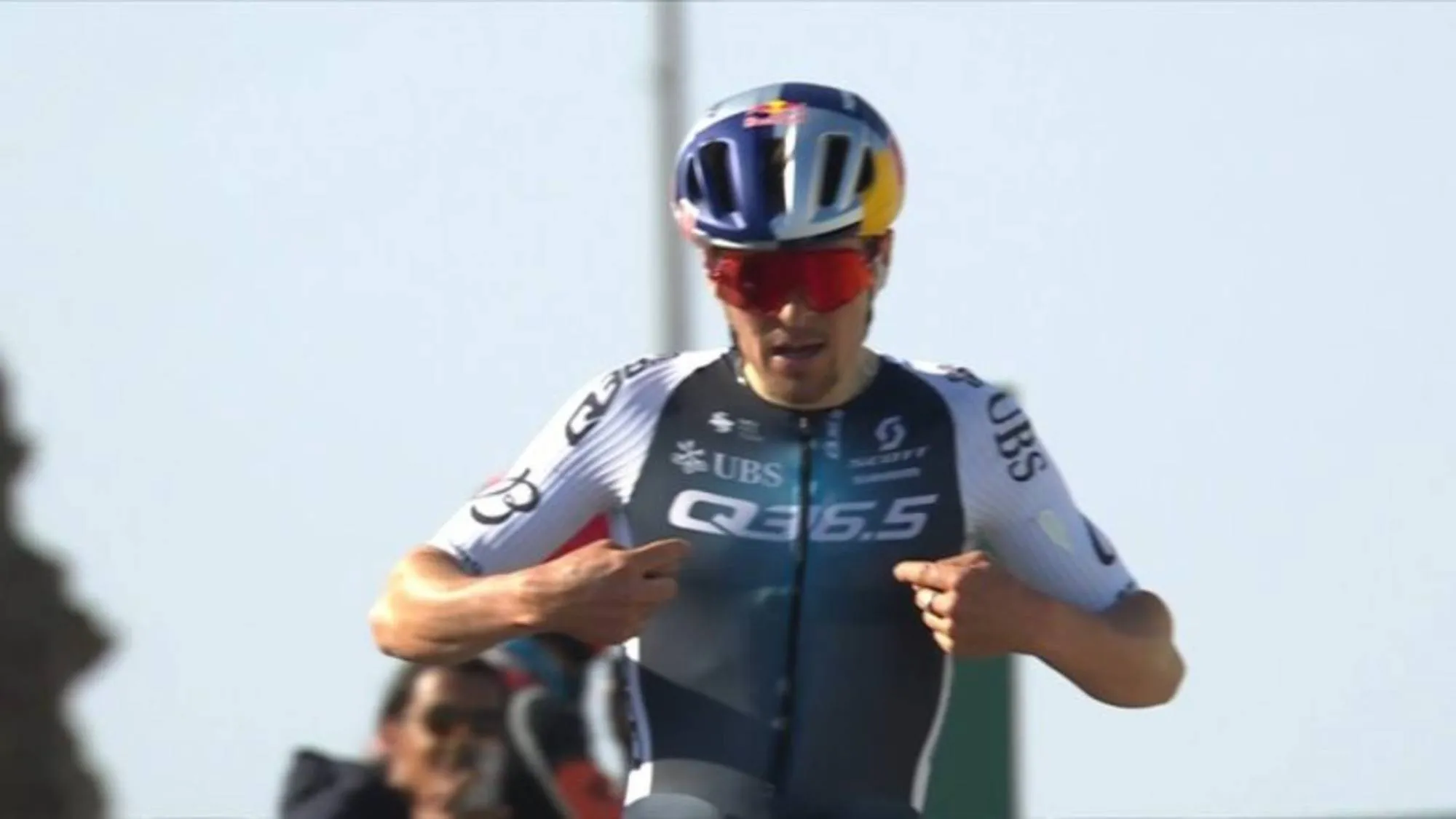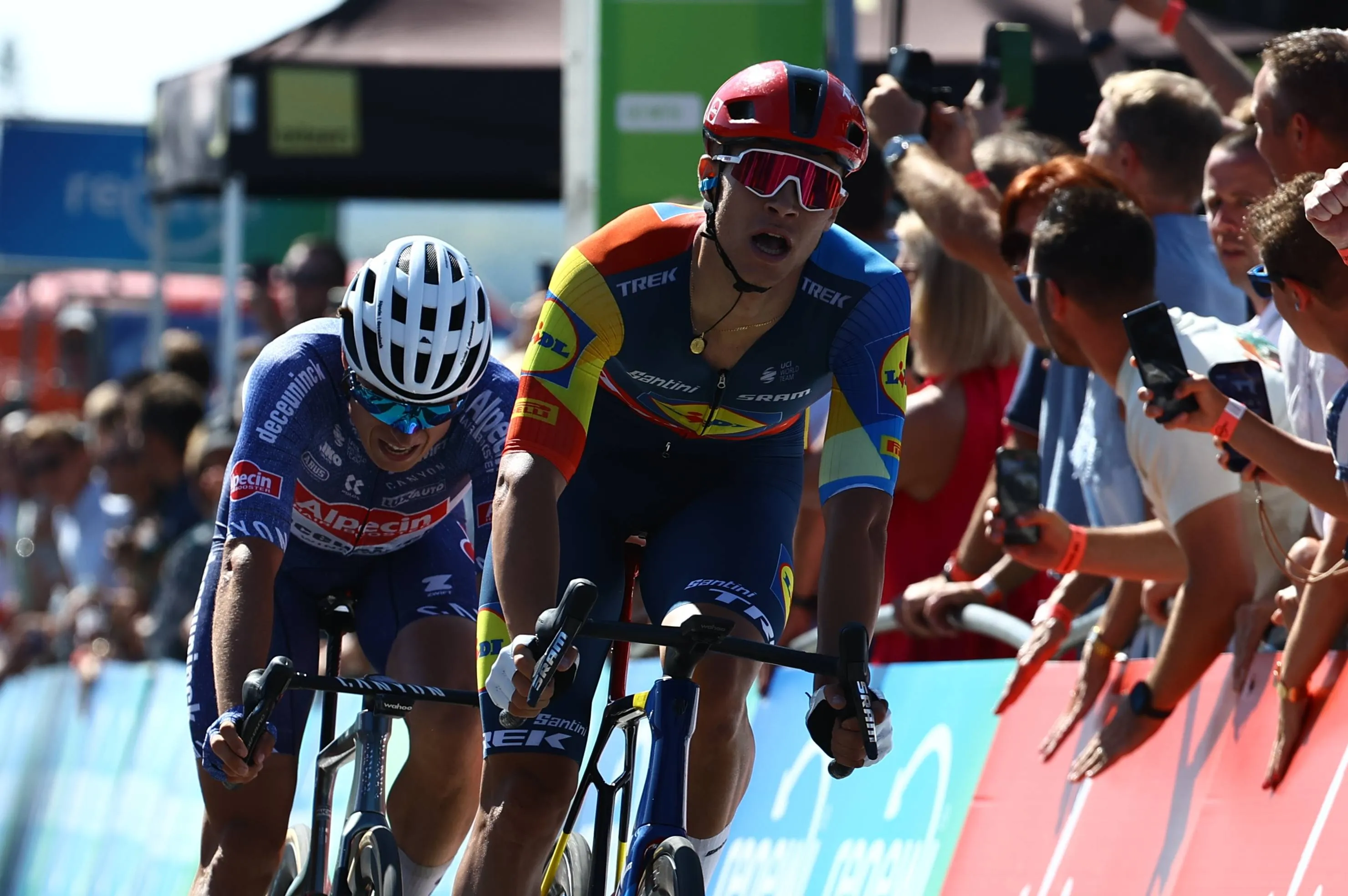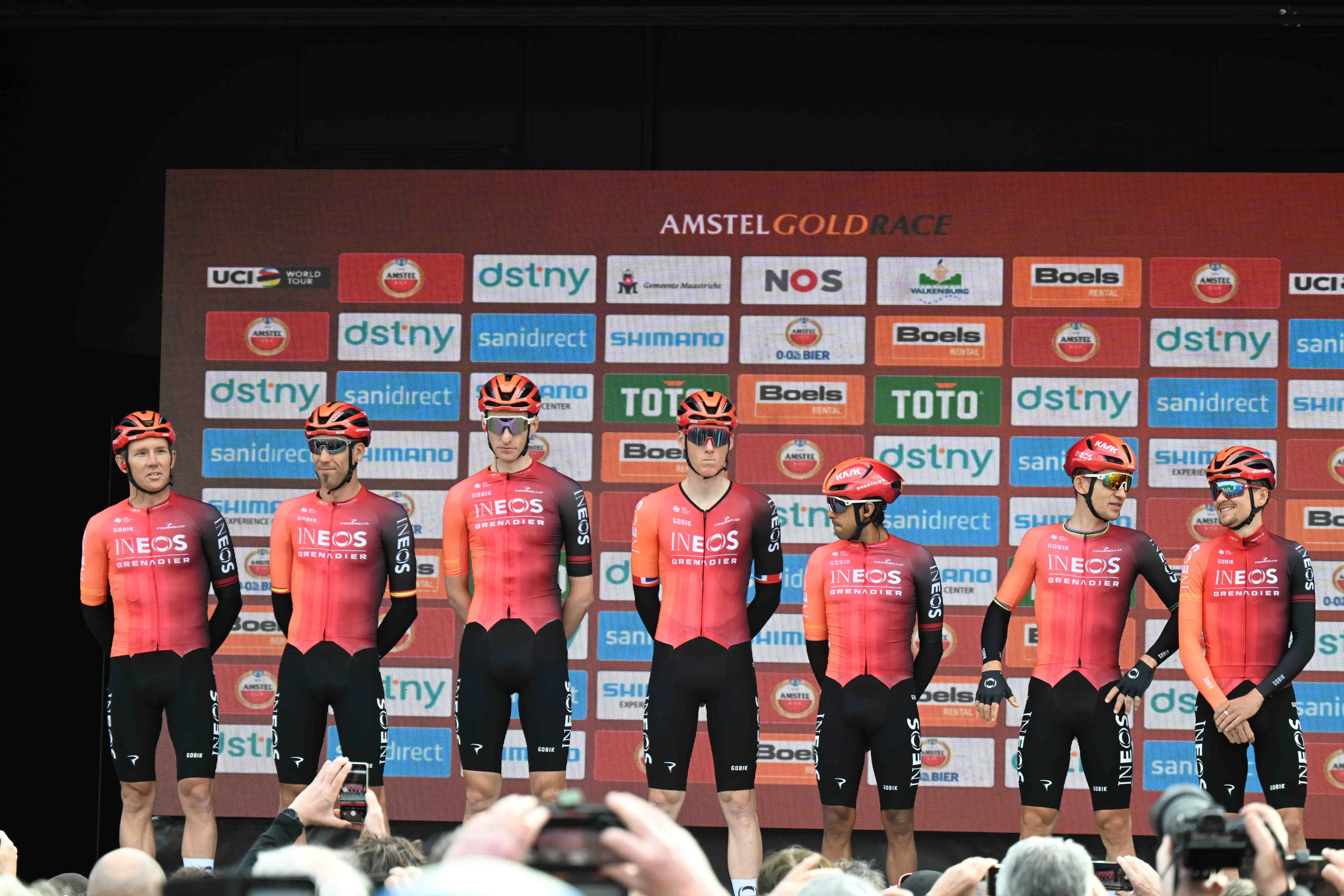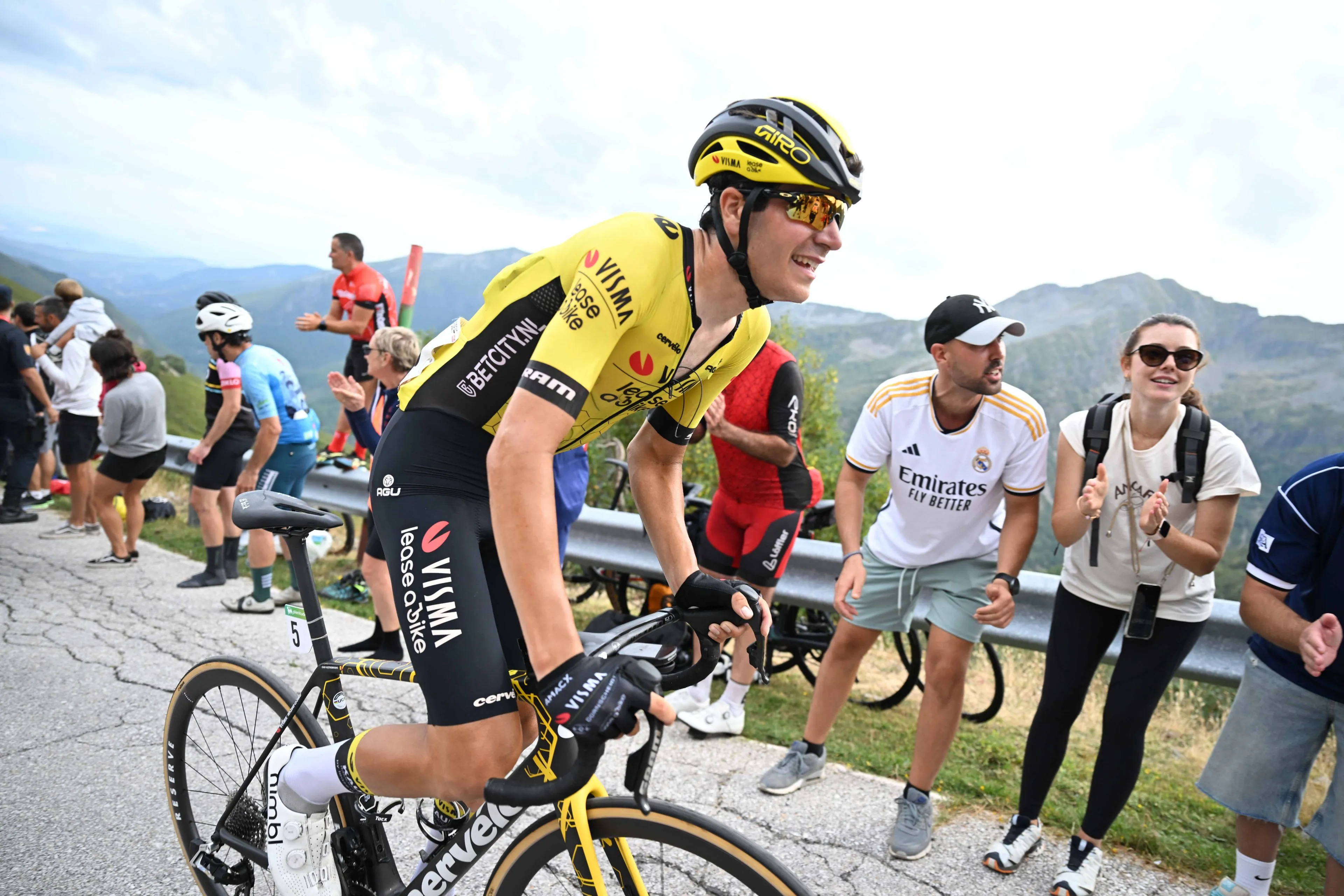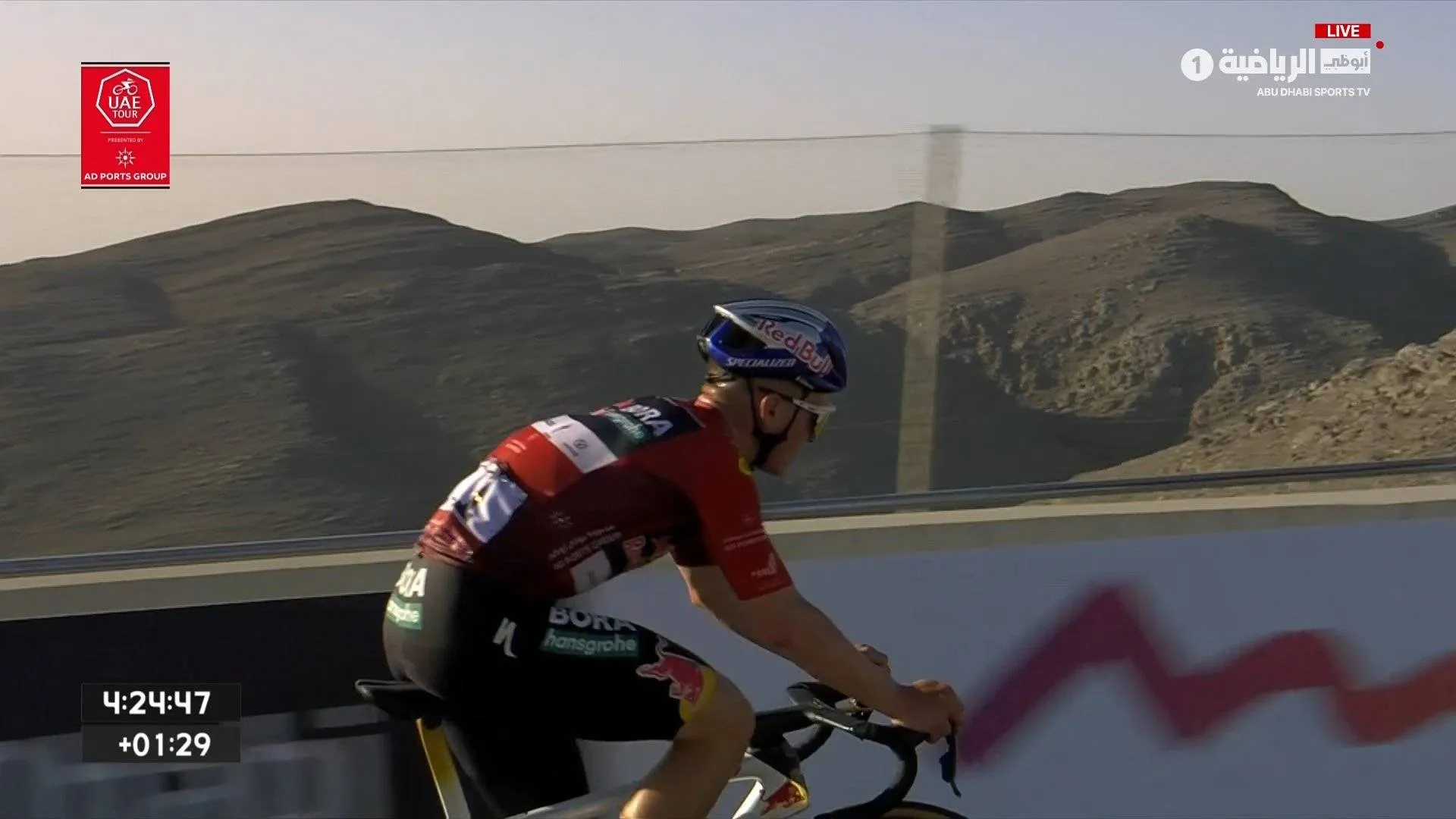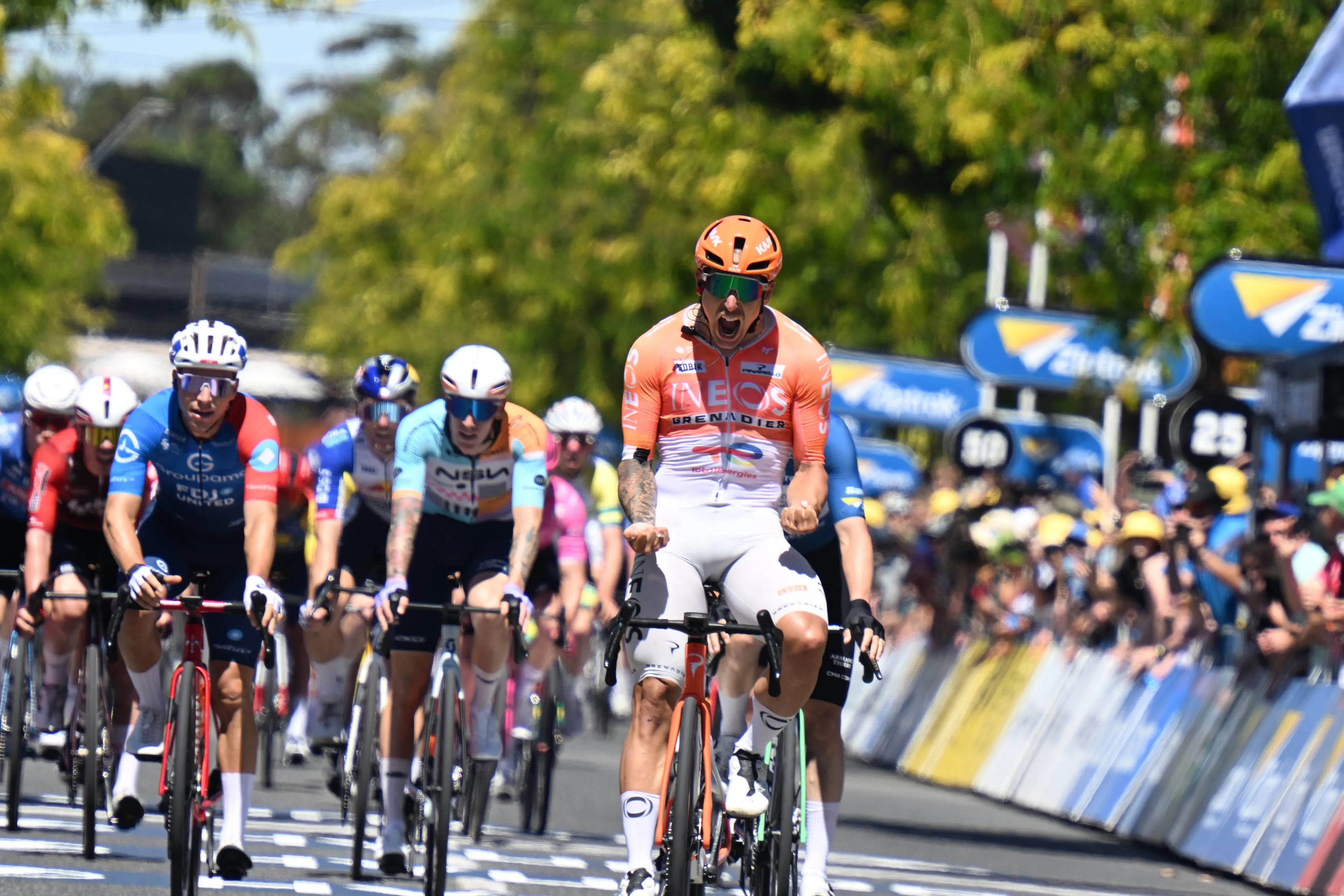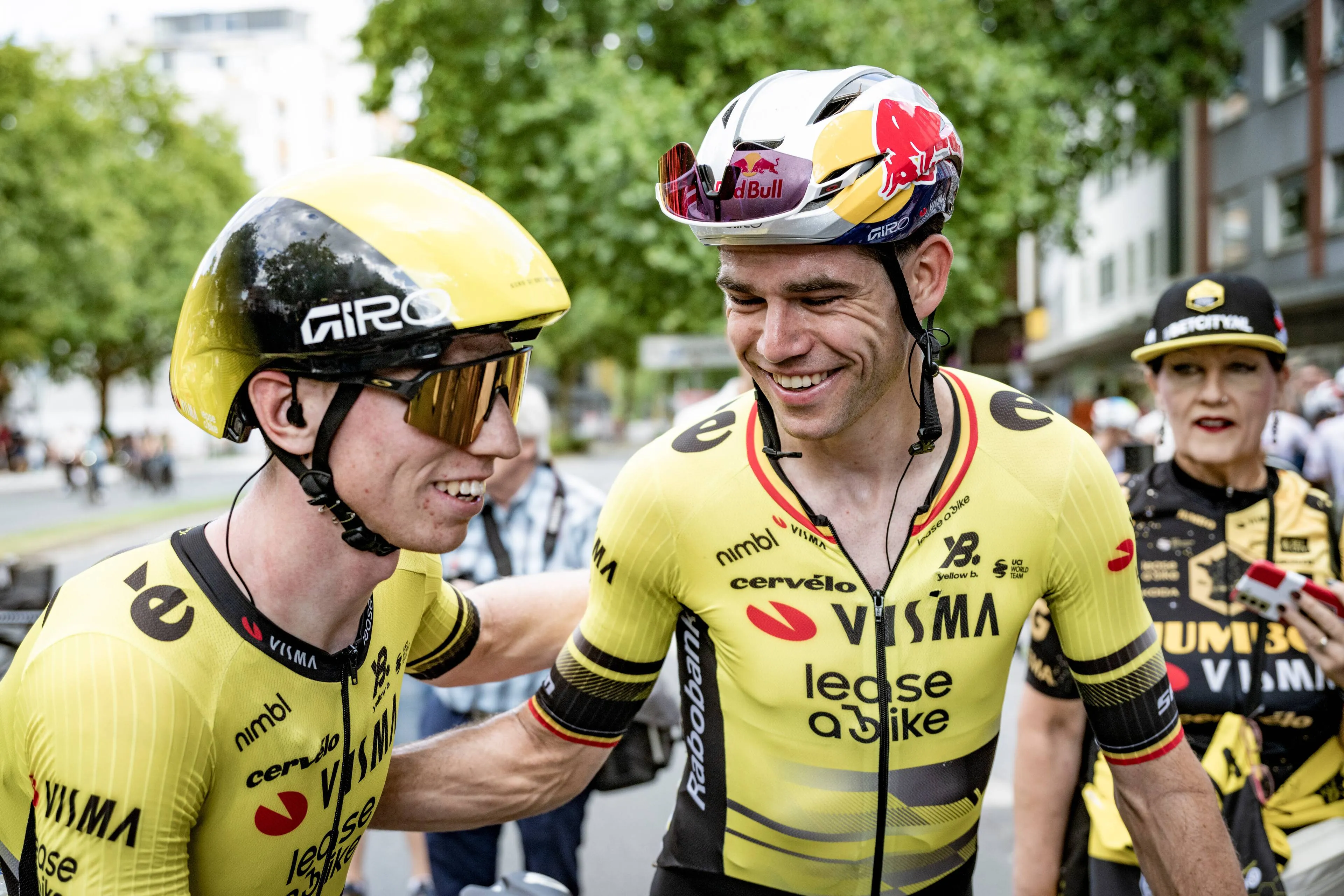ANALYSIS: Belgian cyclocross could be in crisis, and it is not Mathieu van der Poel’s fault
CyclocrossSaturday, 08 February 2025 at 21:30

Another cyclocross winter is drawing to a close, and yet
again it’s been a brilliantly show of predominantly Dutch and Belgian magic
throughout. In Flanders, cyclocross races are major events, drawing thousands
of passionate spectators and commanding prime-time television coverage. The
atmosphere is electric, the fans are among the most dedicated in the world, and
the rivalry between Belgium and the Netherlands has long been at the heart of
the sport.
But is it much of a rivalry anymore?
The short answer would appear to be no. Whilst the Belgian
men have remained competitive, albeit in the shadow of Mathieu van der Poel, on
the women’s side, the situation is reaching a crisis point. Belgium’s female
riders are being completely outclassed, and the numbers paint a bleak picture.
Let’s take a look at what’s going wrong in the Belgium cross season, and how
the orange army took over.
Read also
The harsh reality
When Sanne Cant won the Cyclocross World Championship in
2019, it was a brilliant moment for Belgian women’s cross. Little did they know
it would be the last for some time. That victory has now taken on a different
meaning, as it was the last time a Belgian woman stood on the podium in the
elite women’s category at the World Championships. That was six years ago!
Since Cant’s victory, the Netherlands have dominated women’s
cyclocross and their Belgian counterparts haven’t had as much as a sniff of
victory. Every single world championship podium since 2019 has been an
all-Dutch affair, except for 2022, when Silvia Persico managed to take third
place for Italy. Belgium, once a proud competitor in cyclocross, has completely
disappeared from the top level of the sport in terms of the women’s elite.
Read also
The results from the 2025 World Championships in Liévin
provided no relief for Belgian fans. Fem van Empel, Lucinda Brand, and Puck
Pieterse took gold, silver, and bronze, continuing the Dutch monopoly on the
podium. Meanwhile, Belgian riders were left to fight for minor placings,
nowhere near the front.
Belgian cycling authorities have finally started to
acknowledge the problem, and there have been growing calls for better
development programs and structural support for young female riders. However,
at this moment, the Dutch system continues to produce world-class talent at an
unmatched rate, while Belgium struggles to keep up.
But the problem lies deeper than just during the race for
the rainbow jersey.
The World Championships may be the most high-profile
example, but Belgium’s struggles in women’s cyclocross extend far beyond a
single event. The UCI cyclocross World Cup, the season-long competition that
crowns the most consistent rider across the winter, has been completely
dominated by the Netherlands.
Read also
The last seven World Cup winners have all been Dutch,
reinforcing their supremacy across the sport. In fact, in the history of the
competition, Sanne Cant is the only Belgian woman to have won the overall
title, having done so three times. In stark contrast, Dutch women have won the
title 12 times, proving just how deep their talent pool runs.
Even the podium places have been almost exclusively orange
in recent years. Since 2019, only one non-Dutch woman has managed to finish on
the end-of-season podium: Katerina Nash, who took third place in 2020. Every
other year has seen Dutch riders lock out the top three places, leaving Belgian
riders trailing far behind.
Read also
The Under-23 category: is this where the problem starts?
If you want to understand why Belgium’s women are struggling
at the elite level, the best place to look is the under-23 category. The junior
and development results reveal a massive structural issue within Belgian
women’s cyclocross, and the numbers are shocking to say the least.
A Belgian woman has never finished in the top three of the
Under-23 World Cup standings. In contrast, five of the last seven winners have
been Dutch, which plays a huge role in the Netherland’s ability to keep
producing incredibly talented riders.
The World Championships under 23 race (which were first held
for women in 2016) paint an even bleaker picture. Belgium has never won a
single medal in the Under-23 Women’s World Championships, not gold, not silver,
not even bronze. There has never been a Belgian woman on the podium in the
history of the event!
Read also
Compare that to the men’s Under-23 category, and the
contrast is staggering. Belgian men have won more gold medals in the Under-23
World Championships than any other country, with 13 titles to their name.
Thibau Nys most recently took gold in 2023, which has since translated into
elite men’s race bronze, proving that the country still produces world-class
male riders.
So, why is there such a massive disparity between Belgium’s
men’s and women’s development pathways? The answer likely lies in structural
issues within Belgian cycling. While the men’s system continues to churn out
top-level talent, the women’s system is failing to develop young riders into
world-class competitors.
Belgium’s elite women are struggling not because they are
untalented, but there must simply be some imbalances and shortcomings that have
left them with less adequate training to their male counterparts. One things
for sure, the problem doesn’t begin at the World Championships, it starts at
the grassroots level.
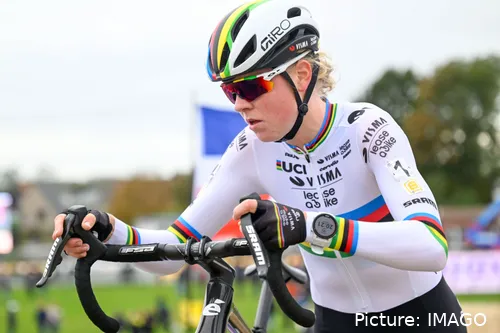
Fem van Empel has won the last three cyclocross world titles
While the women’s side of Belgian cyclocross is in crisis,
the men’s side remains competitive, but only just.
Belgium’s last elite men’s world title came in 2018, when
Wout van Aert won his third consecutive championship. Since then, one rider has
completely dominated the sport, and we are of course now talking about Mathieu
van der Poel.
Van der Poel has been absolutely unstoppable, and perhaps
none more than throughout the 2024/25 cross season. The Dutchman has seven
world titles and leaving even elite riders like Van Aert struggling to keep up.
In 2023, Van der Poel only edged Van Aert in a sprint finish. But what a
difference a couple of years makes as in 2025, the gap had widened to a
staggering 45 seconds.
Read also
In other words, Belgium’s men’s cyclocross doesn’t have a
development problem, it has a Mathieu van der Poel problem. The talent is
there, but it has run into a generational rider who is simply on a different
level.
That’s not the case for the women. While Belgium’s men are
still winning silver and bronze, the women are in a position where they are not
even in the conversation anymore.
What can be done?
The numbers make it clear: Belgium’s problems in women’s
cyclocross start at the grassroots level. The pipeline of young talent, the junior
development structure, and the current strategy simply is not working to close
the gap to the Netherlands.
Read also
For a country where cyclocross is so important and so
popular, this is a crisis. The dominance of the Netherlands isn’t just about
talent, it’s about investment, development, and long-term planning. And of
course the dual brilliance of Mathieu van der Poel and Fem van Empel only
exacerbates the problem further as they continue to leave their rivals in the
dust.
Belgian cycling authorities have begun to acknowledge the
issue, but fixing it will take time. They need to implement better coaching
programs, invest in youth development, and create an improved structured
pathway for young female riders to progress through the ranks.
If Belgium fails to act, the gap will only continue to
widen. The Netherlands already controls every level of women’s cyclocross, and unless
Belgium makes major changes, that won’t change anytime soon.
claps 1visitors 1
Just in
Popular news
Latest comments
- Great champion Remco but his profile is more suitable for Ardennes-like races and tour with no very hard climbs. Not only Tadej and Vingegaard, there are a lot of younger cyclists (del Toro, Ayuso, maybe Seixas, Nordhagen and others) that will soon be big GC boys.
 maria2024202418-02-2026
maria2024202418-02-2026 - Evenopoel 1st real test, and he failedZamorano18-02-2026
- Remco is not the natural climber that riders like Tadej or Jonas are, no matter how much he trains and prepares for it. Yes, you can TT your way up moderately steep hills, but when the gradient gets super steep, he just can't keep up.
 santiagobenites18-02-2026
santiagobenites18-02-2026 - So against the better riders and a long mountain, Remco cracked. Sorry but way away from Pog and Jonasabstractengineer18-02-2026
- “I was portrayed as the devil" Bruyneel was really a talented team manager. His minor flaws: "coordinated, well-funded, and sophisticated doping regime" "hand-in-hand in implementing the team-wide doping programme" "was involved in trafficking and administering prohibited substances and methods, including EPO, blood transfusions, testosterone, human growth hormone, and cortisone. Teammates testified that nothing significant happened without Bruyneel's knowledge and approval." "fostered an environment where doping was considered a "fact of life" and necessary for success, effectively making it a condition of survival on the team. He also participated in or assisted with the cover-up of positive tests and doping violations." Those quotes show Bruyneel's true talent.Cyclingnut18-02-2026
- Fed up hearing "their" voicesslappers6618-02-2026
- When you join Ineos , learning , time , no pressure go out of the windowabstractengineer18-02-2026
- The UCI screws up againcaptmike18-02-2026
- No matter what people say - I'll watch it. And I bet all the complainers will do it too....averagecyclist18-02-2026
- Exactly what I'm thinking about it. Moreover Van Glis had a lot of time to rethink his situation but decided to stay where he was.averagecyclist18-02-2026
Loading
Write a comment
